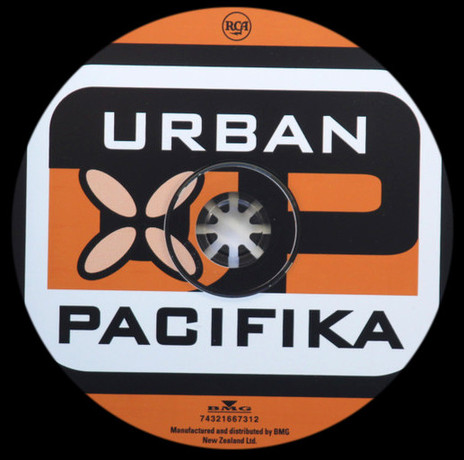
Urban Pacifika Records CD: Pioneers of a Pacifikan Frontier, 1999
Phil Fuemana first made his mark on the Aotearoa music scene with his family group Fuemana – previously known as House Party – releasing their debut album New Urban Polynesian on inner-city label Deepgrooves. He then worked as a key contributor to the Proud compilation album helmed by Alan Jansson, pulling in talent from South Auckland.
Both albums were released in 1994, but Phil realised that if he wanted to have more say in the final product, he needed to be his own boss.
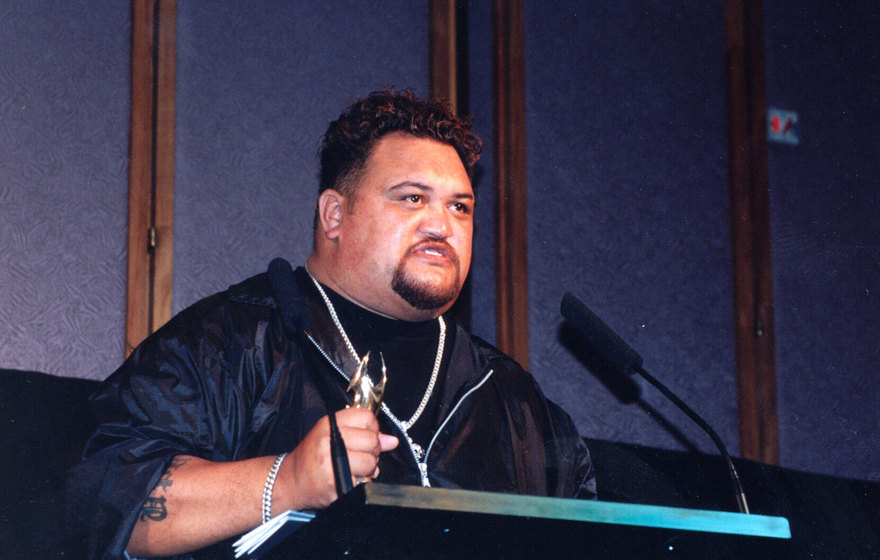
Phillip Fuemana, at the 1995 NZ Music Awards
In 1996 he formed Urban Pacifika Records (UPR), focusing on local hip hop and R&B. He pulled in four acts, South Auckland’s Lost Tribe, AKA Brown, Dei Hamo, and West Auckland’s Moizna, putting together a demo of them to hawk to major labels so he could get a distribution deal, eventually settling on BMG, then home to Che Fu, DLT, and Supergroove, and A&R reps Phil Bell aka DJ Sir-Vere and Kirk Harding.
Phil set about producing singles for each act to build their profiles. From his previous connection with Deepgrooves, he was able to use their in-house recording studio Kaiun, working closely with engineer Simon Holloway. When the label and studio closed in the late 90s, he continued working with Holloway, helping fund his new setup, Beaver Studio, with a cheque from BMG.
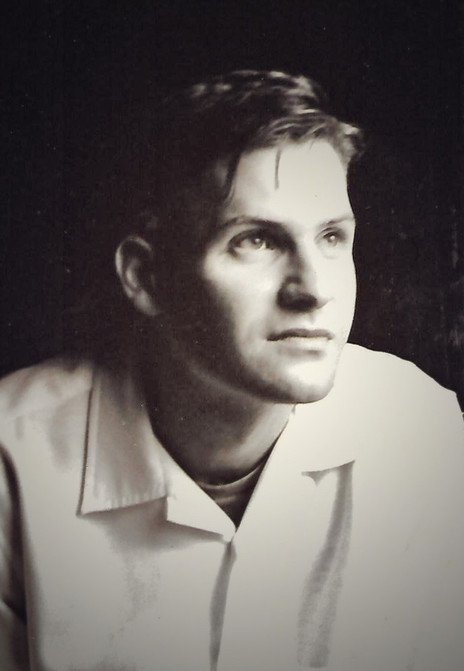
Sound engineer and producer Simon Holloway
The first singles he dropped were from Moizna: ‘Keep On Moving’, and ‘Just Another Day’, the latter rising to No.6 and staying in the singles charts for 10 weeks.
Listen to Moizna, ‘Just Another Day’
Next up, Lost Tribe debuted with ‘Summer in the Winter’ in 1997, spending seven weeks in the chart, peaking at No.16 and also placing high on the 95bFM Top Ten.
AKA Brown put out their smooth R&B tune ‘Something I Need’ in 1999, spending 13 weeks in the chart, with two weeks at No.5.
Listen to AKA Brown, ‘Something I Need’
UPR was a commercial and critical success from the start, and quickly proved there was a local appetite for their sounds. The label also produced a string of impressive music videos for these singles, showcasing their performers and their stylish urban looks, which also helped spread their name.
The label collected the singles plus some new tunes along with first appearances by Dei Hamo and Phlypcyde for their first album length release, a killer compilation called Pioneers of a Pacifikan Frontier, released in late 1999.
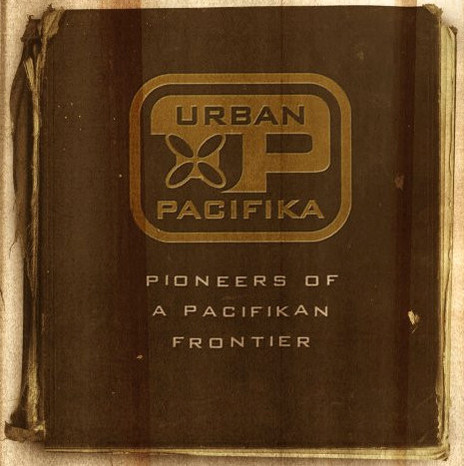
Front cover, Pioneers of a Pacifikan Frontier CD compilation (Urban Pacifika Records, 1999)
Phil Fuemana told Real Groove’s Stephen Jewell (June 1999) “Urban Pacifika is an extension of what we’ve been doing for a decade. Different styles but all in the same Polynesian genre, island drums etc. Urban Pacifika came about mostly because of control. We did Proud, [then] a Christmas album, but we had no creative control. Instead of doing a song, walking away, and leaving someone else to finish off, I said ‘No. We’ll start and finish it.’ Out there right now, there’s a lot of hip hop and R&B artists, but most of those guys have to go to producers and someone else has the rights to their songs. With us, we record, write, arrange, and produce. We own everything.
“ŌTARA IS THE BIRTH CAPITAL OF THE MUSIC.”
“We took nearly a year shaking off the old ways of thinking. Thinking it’s all about artistic credibility, but that ain’t got nothing to do with it. You come to the deal with your cultural soul intact and they want what you bought. We’re not changing anything; we’re doing what we love. We love being on the radio, being on MaiFM and bFM. We didn’t contrive all that, but that’s what our aim has always been, getting out to the people.
“R&B judges a song by the feel, how it’s produced, the vocal execution. It’s only now being accepted for what it is. With our groups, AKA Brown and Moizna, they’re representing R&B for this country. Showing that it can be thought out and original and still have our flavour.
“We’ve just done our own thing, stayed in Ōtara and done our music. We don’t come to many gigs in the city. It’s crossed over nicely. Now everybody’s coming down to our patch to see us.
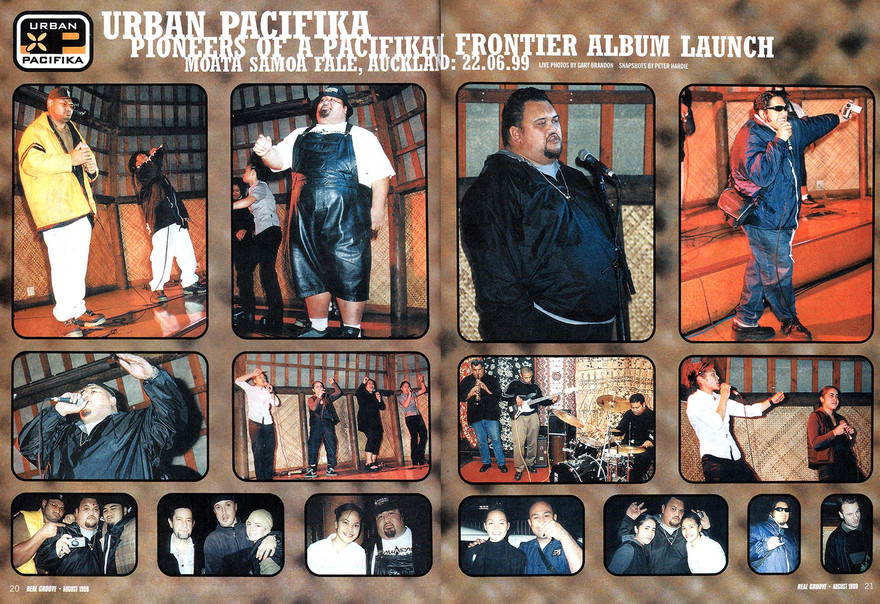
Pioneers of a Pacifikan Frontier album launch, Samoa House Auckland, 22 June 1999. From Real Groove magazine, August 1999.
“The reason they’re in Ōtara is because we created a vibe in Ōtara. Ōtara is the birth capital of the music. Ermehn, Ardijah, Moana and the Moahunters ... we all come from Ōtara. This little town that had no rec centre or swimming pool for ages, no parks, no toilets, because it was made very quickly to house all of us [Polynesians] that got kicked out of Parnell.” [Fuemana’s family grew up in Parnell, before shifting to Ōtara; their father worked on the docks at the port.]
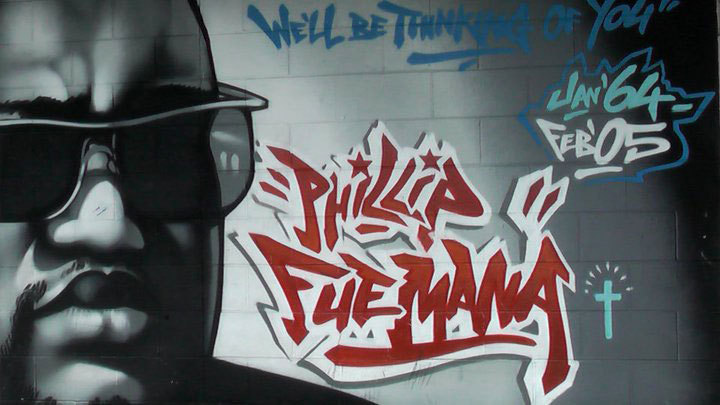
Phil Fuemana mural by Askew at the Ōtara Music Arts Centre - Matty Ruys Collection
“We’re very loyal to Ōtara because our success is down to determination triumphing over adversity. But look at the wider picture, Ōtara is very separate. There is a real stigma with South and West Auckland through gangsta rap. That’s why I signed Moizna, being a West Auckland band, because [UPR] being all South Auckland would be too much.
“We wanted to put out a single and have the groups involved. I really liked the original ‘One Step Ahead’ [by Split Enz] and its bassline. We didn’t want to use any more overseas sampling. ‘One’ was perfect for us because my philosophy is that there can only be one and it’ll be us. I contacted Mushroom and they sent a demo to Neil Finn in London and he said, ‘Go hard, man.’ I thought he’d take 50% but he took 10%. Fair enough.”
Dei Hamo: “Outside of the record label, we’re all friends, which is important. We’re always at each other’s houses, we go out clubbing together. Plus, me, Phil and John [Chong Nee of AKA Brown] do all the production as well.”
Phil Fuemana: “UPR is an extension of our love of all Polynesian people worldwide. We are the only Polynesian-owned record company. There’s nothing in the States or the Islands. They’re all owned by someone else. It’s my goal to have our own films, our own print, to tell our stories. I don’t give a shit if no one buys it because someone will. My family and their friends will buy it.
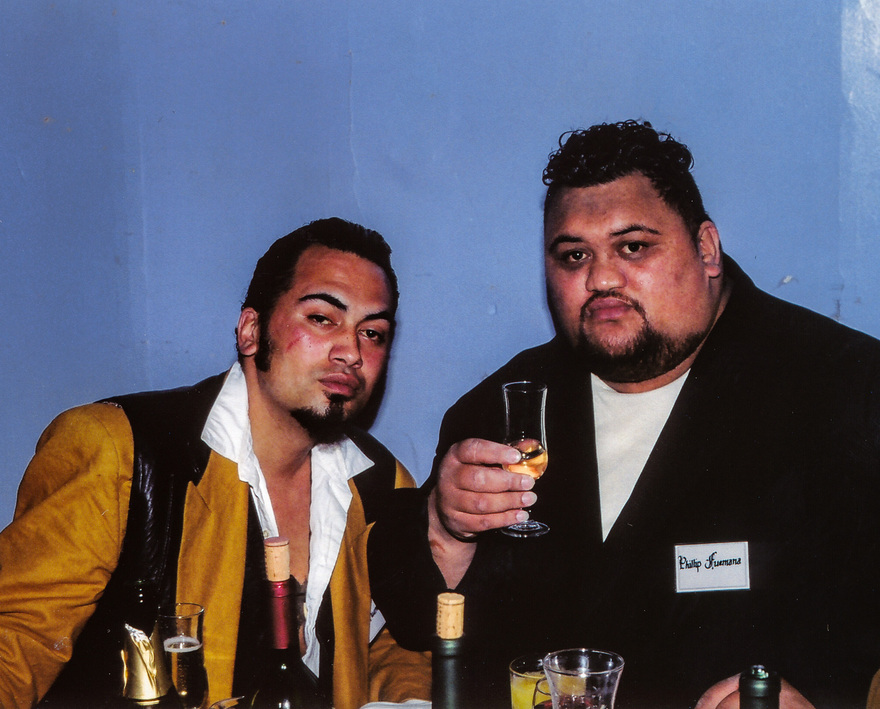
Pauly and Phil Fuemana at Cause Celebre in Auckland's High Street after the 1994 APRA Silver Scrolls
“How did Pauly [Fuemana, OMC] become a millionaire? How did Phil get his company? We started UPR in 1996 and since then we’ve been to the Music Awards, done everything we dreamed about. Now we just want to get overseas. We got our own nightclub which is packed every other night, we got our own gridiron team, which has got 50 members. All from one idea.”
Kerry Buchanan reviewed the label’s compilation for Real Groove: “The Pacifikan frontier represents links with black American styles, funk, soul slow jam and hip hop. Once again, adaptive not submissive. It’s an expansion of a musical heritage that has meaning and feeling to us. It’s got nothing to do with mindless copycat actions, but a forging of a new attitude, a new style and bringing out a culture of Polynesian creativity. Pioneers of a Pacifikan Frontier is a celebration of all that.”
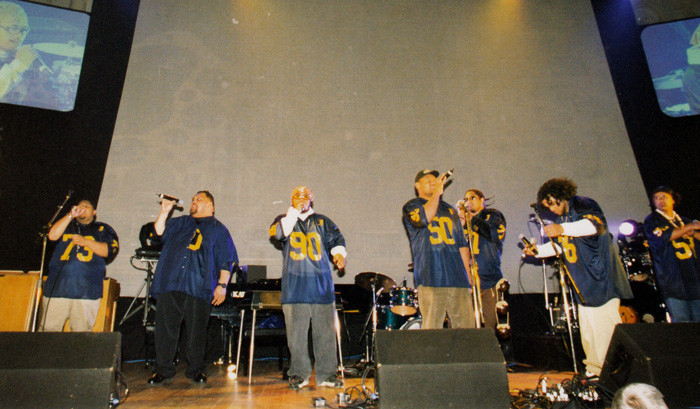
Phil Fuemana and the Urban Pacifika showcase
Gareth Shute (from his book Hip Hop Music In Aotearoa, 2004): “Despite having a number of hit singles, the Pioneers album did not sell as much as Fuemana had originally hoped. He partly sees this as a failing of those involved in the marketing of the album: ‘To me, I felt, like, Kirk [Harding, A&R at BMG] sorta left [the label] at a crucial time. I know he had to do his thing, but I felt like, no blame to BMG or anything, but it was something I felt like they didn’t know how to market correctly. Saying it now is pretty easy. Remember there was no big Pacific music hype like today. But I was in the thick of it too. I probably didn’t know how to market it.’
Phil Fuemana went on to take up a fulltime job at BMG. Without him pushing the groups, a lot of the acts faded away. Some moved on to other things, like Brotha D from Lost Tribe, who started up the Dawn Raid label with Andy Murnane, or John Chong-Nee, who focused on music production. Phil later shifted his focus to his Māori heritage, devoting time to developing some urban acts using te reo, prior to his untimely passing in 2005.
--
Read more: Lost Tribe in Rip It Up, October 1997